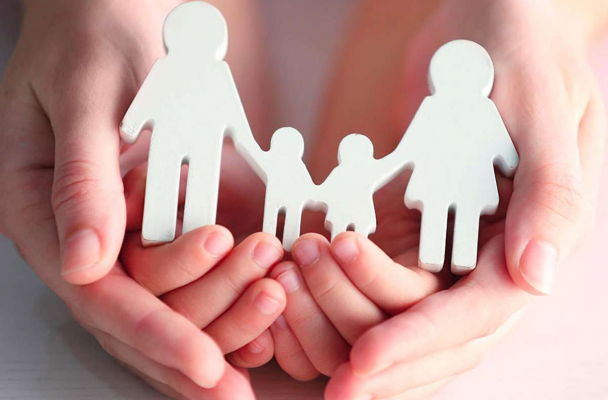The argument for adoption

Adoption offers a compassionate alternative for those who don’t wish to have biological children.
Image retrieved from Family Education
By Delaney Geraghty
Staff Writer
When I tell someone I want to adopt children rather than having biological kids, sometimes I’m met with support or a smile. Sometimes I face the classic reply of “You’ll change your mind when you get older,” a response that those who state they don’t want any kids at all have also been subjected to.
Although I’m 20 years old and have my entire life ahead of me, I’m certain in my desire not to have biological children, and I think that others should consider this option as well.
I want to be able to give a home to a child without one. Thousands of children in the U.S. spend time in the foster care system. According to the most recent available report from the Children’s Bureau (a subset of the Department of Health and Human Services’ Administration for Children and Families), the number of children in foster care has been on the rise since 2012, with an estimated 687,000 in the public foster care system in 2018. Think about that. In 2018, over half a million children were in the foster care system in some capacity. And of those 687,000, only around 63,100 were adopted – not even 10%.
Consider your own upbringing. I’d venture that most of us have not had experience in the foster care system – that we’ve known the comfort and security of a generally stable home and family structure. Can you imagine not having a guaranteed place to call your own? To be subjected to the tide of the foster care system throughout some of your most crucial and formative years?
By adopting a child from the foster care system, or any newborn from an adoption agency, you’re providing comfort, stability, opportunity and, most importantly, love to a child who may not have otherwise received it.
Plus, pregnancy can be incredibly physically, mentally and emotionally taxing. Yes, being pregnant is a common and natural state that many women experience, but that doesn’t mean it doesn’t present extremely real struggles and hardships: morning sickness, mood swings, aches and pains, labor, and the anxiety on top of it all.
And that list only encompasses the average pregnancy ailments. More serious complications can very well occur during pregnancy, while giving birth, or after the delivery. According to the Centers for Disease Control, “severe maternal morbidity (SMM) includes unexpected outcomes of labor and delivery that result in significant short- or long-term consequences to a woman’s health,” and the number of incidences has massively increased – from 1993 to 2014, the SMM rate grew by almost 200%. A report by ProPublica and NPR cited pre-existing conditions, disproportionate health care access and medical errors as leading reasons for this steep incline.
Any number of mild to life-threatening complications can arise, and can bring trauma and/or financial stress along as well. And even if a woman doesn’t suffer from any physical ailments, she may experience mental/emotional issues brought on by pregnancy and giving birth, such as postpartum depression. This condition can be chronic, lasting for months or even years after giving birth, and the CDC reports that about 1 in 9 women suffer from it. Additionally, a number of factors put certain women at increased risk for postpartum depression, including a history of mental illness, medical complications during delivery or inadequate social support.
Because pregnancy is such a commonplace occurrence, we often don’t consider all of the trials and tribulations that accompany it, even though they present legitimate concerns. If a woman doesn’t want to subject herself to the possible perils, we should respect that decision rather than deriding it as “selfish,” or insisting that she’ll inevitably change her mind as she ages. Maybe she will change her mind. But maybe it’s not our place to suggest all women will eventually undergo that change of heart.
And then there’s the ever-present threat of climate change. The general consensus of the scientific community is that climate change is occurring, and that carbon dioxide emissions produced by human activity are greatly contributing to this warming of the planet. Glaciers are melting, sea levels are rising, the growing season is lengthening, and more intense, droughts, heatwaves and hurricanes are expected to result from the continuing greenhouse effect perpetuated by carbon dioxide emissions.
With this genuine threat to our planet and the future generations that will inhabit it, the thought of bringing another human being into it all definitely presents a cause of concern for me. Adopting a child means providing for someone who is already on this earth and will already experience the effects of climate change regardless, not adding another to the global population (and thus heightening emission levels, as these emissions are largely caused by humans).
Now, this is not meant to read as a diatribe against those who want to have biological children; to give birth can be a beautiful, miraculous and much-desired aspect of the human experience. However, our society should not invalidate the wishes of those who don’t want to have biological children, and people should truly consider the benefits of adoption.